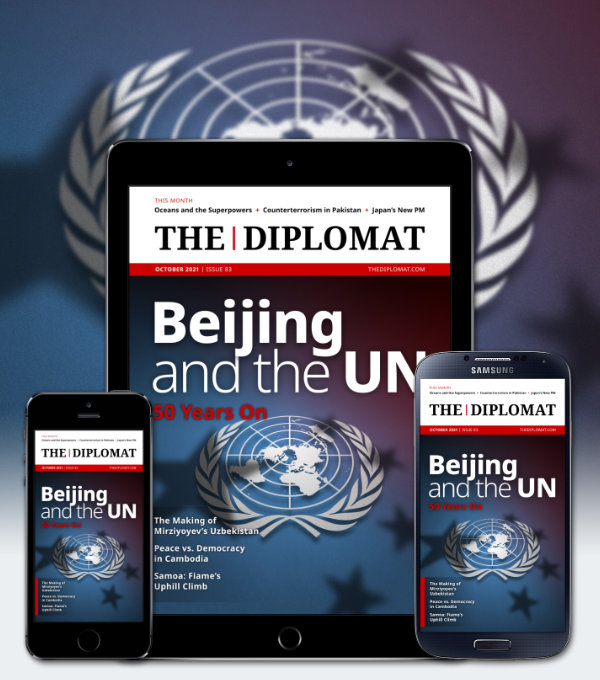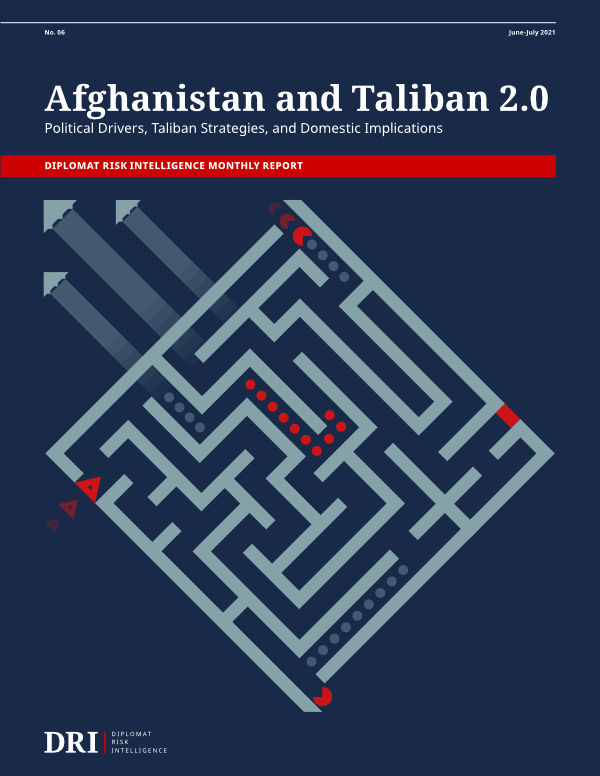| Welcome to the latest issue of Diplomat Brief. This week our top story examines a potential shift in ISK’s approach to China. We also have an interview with Li Zhang, a visiting assistant professor of global and international studies at the University of California, Irvine, on the global forces that made a worldwide pandemic only a matter of time. |
| Story of the week |  | SECURITY Is the Islamic State in Afghanistan Targeting China?What Happened: On October 8, a suicide bomber killed over 70 worshippers at a Shiite mosque in Afghanistan’s Kunduz province. Islamic State Khorasan (ISK) claimed responsibility for the attack, which is in line with its bloody history of targeting Afghan Shiites. But in a first, ISK claimed that the attack had been carried out to punish the Taliban for their cooperation with China – and that the attacker was a Uyghur. Our Focus: “An analysis of the attack indicates that ISK is potentially considering pivoting its China strategy away from what it was previously assessed to be, moving from a relatively non-provocative posture toward a more hands-on stance,” Nodirbek Soliev, a senior analyst with the International Centre for Political Violence and Terrorism Research (ICPVTR), writes for The Diplomat. “Furthermore, ISK is apparently viewing the Taliban’s stated incentives to deport Uyghur militants as an opportunity to position itself as a new protector of the Uyghurs, with the aim of welcoming disgruntled Uyghur militants into its ranks.” What Comes Next: China’s greatest fear in Afghanistan is that Uyghur militant groups will coalesce in the country and use it as a base to conduct attacks on Chinese personnel and installations. Now ISK is playing into that fear by seemingly making a bid to attract Uyghurs to its cause. In the future, ISK might follow this up by directly targeting Chinese interests in Afghanistan or Pakistan. Read this story |
| Behind the News | INTERVIEW Li ZhangLi Zhang, author of the new book “The Origins of COVID-19: China and Global Capitalism,” on the big picture origins of the pandemic: “There has been a dramatic rise in new infectious diseases in recent decades, and outbreaks that would have simply caused local epidemics are now much more likely to become global pandemics. This is because of the radical intensification of capitalism and consumerism worldwide, especially the sacrifice of entire ecosystems in the pursuit of profit and consumer goods, and the adoption of industrial modes of production (especially in livestock and food management).” Read the interview |
| This Week in Asia | Northeast Asia Japan Goes to the PollsJapan will have a general election on Sunday, an early test of new Prime Minister Kishida Fumio’s support from the public. It would be a stretch for the opposition to win an outright majority away from the ruling coalition, but recent by-elections and Kishida’s shaky approval ratings suggest the LDP may lose seats. Find out more | South Asia Tehreek-e-Labbaik Flexes Its Muscles Yet AgainThe TLP continues to show its street power in Pakistan, undertaking its now-customary wave of autumn sit-in protests. This time, the Imran Khan government capitulated quickly, attempting to assuage the hardline religious group by promising a parliamentary debate over the expulsion of the French ambassador, following comments by President Emmanuel Macron last year that many viewed as Islamophobic. Find out more | Southeast Asia ASEAN: It’s Summit TimeThis week, ASEAN is holding its annual jamboree of diplomatic conclaves, which began with the bloc’s twice-yearly summit on October 26 and will be followed by a range of regional meetings, including the East Asia Summit. The proceedings have been overshadowed by the ongoing crisis in ASEAN member state Myanmar, which resulted in the highly unusual case of the country opting to skip the summit after the bloc chose to exclude coup leader Min Aung Hlaing from attending. Otherwise, expect China-U.S. tensions and COVID-19 recovery to be high on the agenda. Find out more | Central Asia Tajikistan’s Position on Afghanistan Yields Warm European WelcomeWith its non-engagement of the Taliban, Tajikistan has clearly positioned itself for the West as the closest thing to a like-minded partner in Afghanistan’s neighborhood. Earlier this month, Tajik President Emomali Rahmon was warmly welcomed in both Brussels and Paris, with Afghanistan, refugees, and climate issues at the top of the agenda. Find out more |
| Visualizing APAC |  | A camp set up for residents to register for the COVID-19 vaccine in Dibang Valley, Arunachal Pradesh, along the border with China. Extreme efforts were needed to bring the vaccines to this remote region, with very little transportation infrastructure. See the full picture |
| Word of the Week | ENVIRONMENT #ไฟเซอร์นักเรียนThai, meaning “Pfizer for students.” The hashtag emerged as Thais attempt to understand the unusually high vaccine hesitancy among Thailand’s young people. Find out more |
|  |





